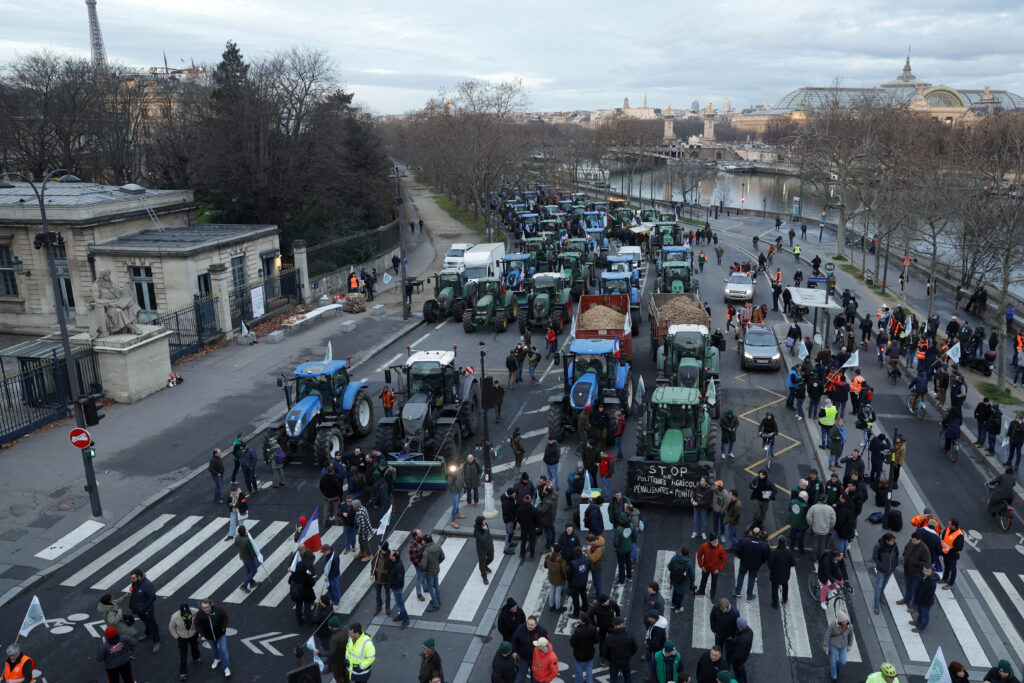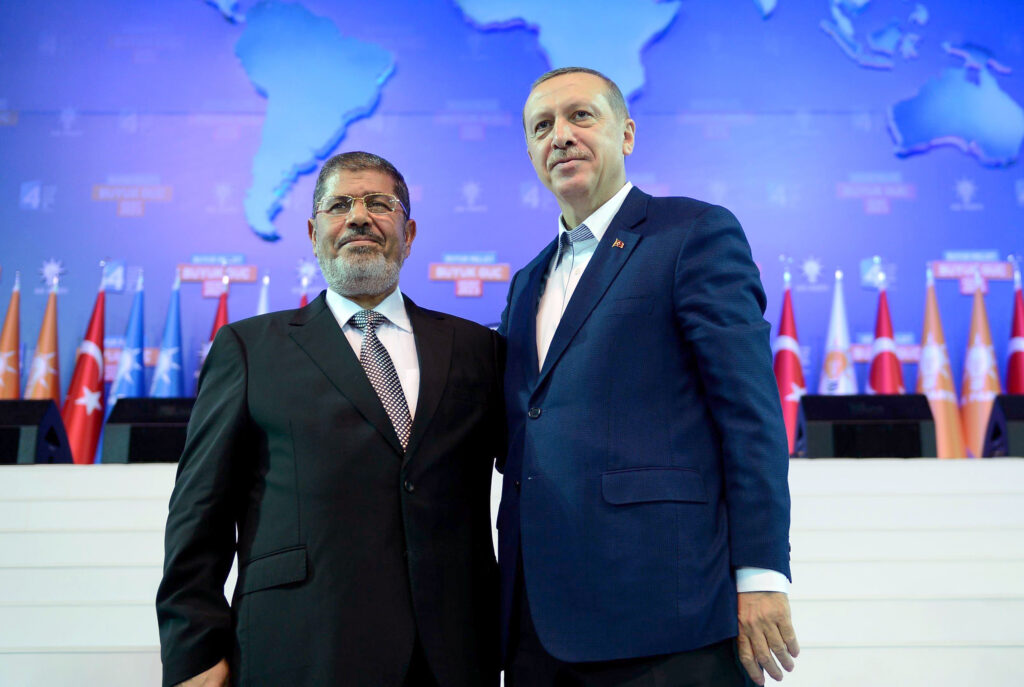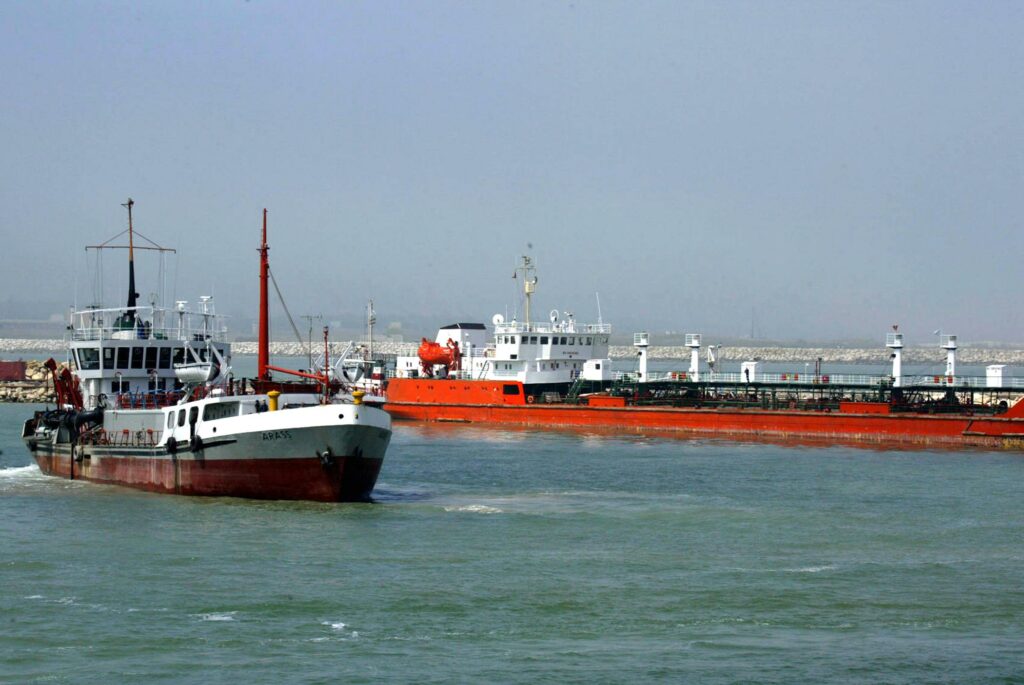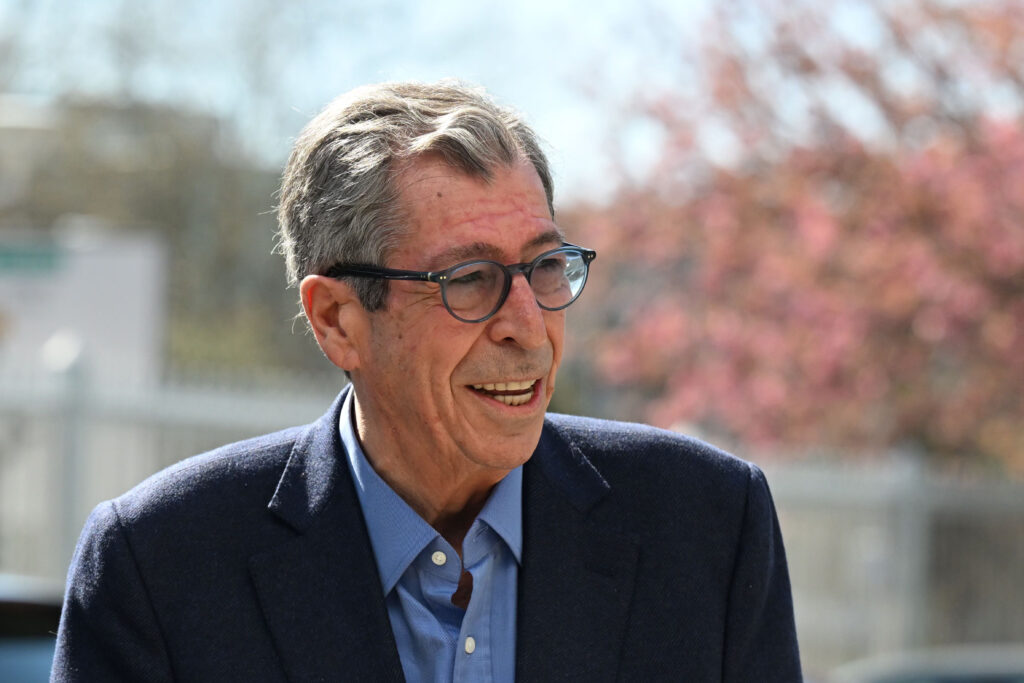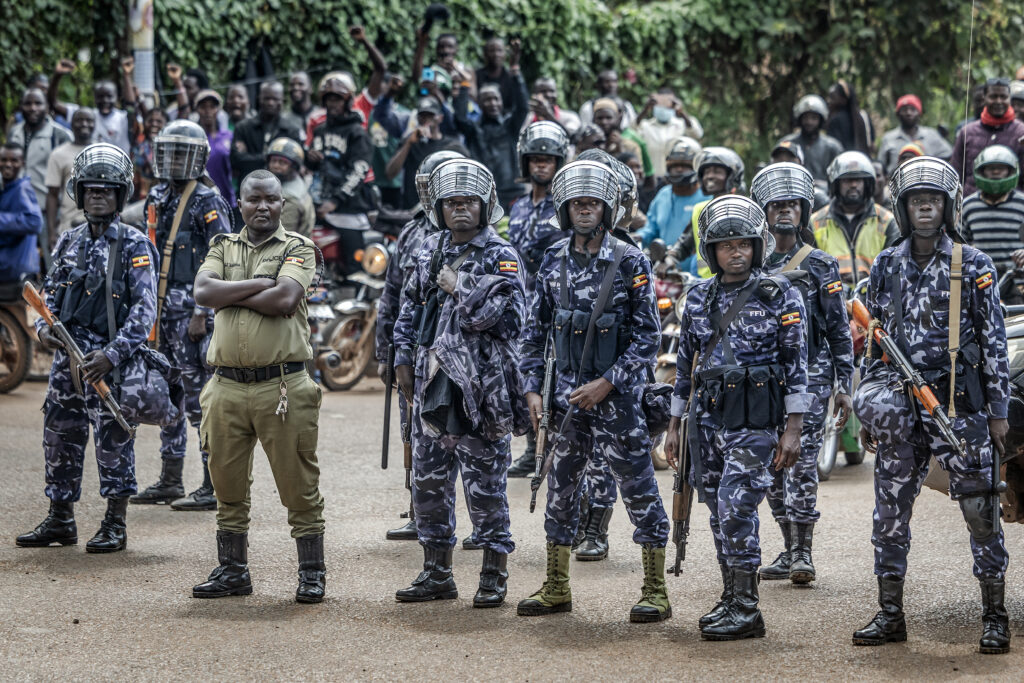Les agriculteurs passeront la nuit devant l’Assemblée malgré l’annnonce d’une “loi d’urgence agricole”
Une nuit dans leurs tracteurs: la FNSEA a annoncé rester jusqu’à mercredi matin devant l’Assemblée nationale malgré la “loi d’urgence agricole” promise par le Premier ministre dans la journée pour tenter de calmer la colère des agriculteurs. “On a décidé, après consultation des délégations, de rester ici pour la nuit”, a déclaré mardi soir Damien Greffin, l’un des vice-présidents de la FNSEA, afin de “mener un dernier combat”. Entre la fatigue et la déception, le désarroi était palpable dans la soirée, dans les rangs des manifestants.Ici, un groupe discute sur des tabourets improvisés en paille, au pied de leurs tracteurs ; là, un barbecue improvisé et du boudin grillé sur les quais de Seine, sous le regard amusé de joggeurs nocturnes.- Déçus et fatigués -Qu’est-ce que cela change d’y rester la nuit? “Peut-être rien. Sûrement rien, mais on espère quelques trucs quand même”, dit à l’AFP Paul Dherouville, céréalier vers Saint-Lys (Occitanie).”C’est une façon d’affirmer notre position, nos revendications. Partir maintenant, ce serait déposer les armes”, confie-t-il à l’AFP sans savoir s’il monte dans son tracteur pour dormir ou reste dehors avec les autres profitant d’une nuit parisienne étonnamment clémente. “Franchement, je ne pense pas qu’il y aura plus de résultats. On est dans l’attente. On est un déçus. Fatigués aussi”, abonde Audrey Roubault, céréalière de Fontainebleau. Portant un foulard “agriculteurs en colère”, le chanteur Francis Lalanne est venu de Bruxelles se joindre au mouvement “par solidarité” et pour rendre hommage à ses “grands-parents agriculteurs”. Plus tôt dans la journée, Sébastien Lecornu a pourtant annoncé “une loi d’urgence agricole” portant sur “plusieurs priorités: eau, prédation, moyens de production”. “Ce texte sera inscrit à l’ordre du jour du Conseil des ministres au mois de mars et sera ensuite examiné par le Parlement avant l’été”, a promis le Premier ministre.”Ces annonces montrent que les propositions du réseau FNSEA résonnent auprès des décideurs publics”, a indiqué le syndicat dans un communiqué tout en ajoutant que la mobilisation se poursuivait. Parmi la base des délégations agricoles, beaucoup ont exprimé leur volonté de rester pour poursuivre les négociations et maintenir le rapport de force. Devant ses troupes, le vice-président de la FNSEA a affirmé mardi soir vouloir “remonter au créneau” sur le “sujet de trésorerie, actuellement en discussion”. Mardi, Sébastien Lecornu a également affirmé qu’un “cap clair” sur la politique de l’eau serait par ailleurs “fixé d’ici le salon” de l’Agriculture qui se tiendra du 21 février au 1er mars, et demandé, avant la présentation du projet de loi, un “moratoire sur toutes les décisions relatives” à cette question de l’eau et la suspension des “textes fixant les volumes d’eau prélevables (…) jusqu’à septembre”. Le chef du gouvernement a enfin évoqué des réunions pour étudier “les possibilités de dérogation” à la directive européenne sur les nitrates, qui encadre notamment les épandages d’engrais par les agriculteurs. Cela s’ajoute à un paquet de “300 millions d’euros” annoncé vendredi et qui contient des mesures prévues à la fois dans le budget, et donc soumises au vote des parlementaires, et d’autres déjà égrainées ces dernières semaines par le gouvernement pour répondre à la crise agricole.- Divergences syndicales -Les annonces de mardi répondent quasiment point par point à des demandes de la FNSEA et des JA, alliance qui domine le syndicalisme agricole et dont les sections locales du grand bassin parisien -qui va jusqu’au Pas-de-Calais- ont lancé leurs tracteurs sur Paris.Entrés à l’aube dans Paris, les tracteurs ont descendu les Champs-Elysées avant de s’établir devant l’Assemblée nationale, avec duvets et matelas. Mardi, plus de 350 tracteurs selon les autorités, 500 selon les manifestants, ont stationné aux abords de l’Assemblée nationale, et les agriculteurs présents ont aussi déversé plusieurs tonnes de pommes de terre sur le pont de la Concorde: cadeau aux Parisiens.- “Noyer le poisson” -Depuis début décembre, les manifestations d’agriculteurs se multiplient et les annonces du gouvernement vendredi après des défilés de tracteurs de la Coordination rurale puis de la Confédération paysanne dans la capitale n’ont pas suffi à calmer la colère.La Coordination rurale a dénoncé mardi sur X “la différence de traitement du gouvernement face à nos mobilisations”, en référence aux interdictions auxquelles le deuxième syndicat a fait face en amenant ses tracteurs jeudi à Paris.”Le Premier ministre se moque des paysannes !!”, a pour sa part dénoncé la Conférération paysanne dans un communiqué mardi soir en estimant que demander “une loi spéciale” revenait à “noyer le poisson”.Ravivée par la gestion de la dermatose bovine dans le Sud-Ouest, la contestation est nourrie par la signature prévue samedi au Paraguay de l’accord de libre-échange UE-Mercosur et plus largement par un ras-le-bol général d’une profession confrontée directement aux aléas climatiques et économiques.bur-sb-mdz-cho-are-hrc-mca-neo/jbo/bfi
